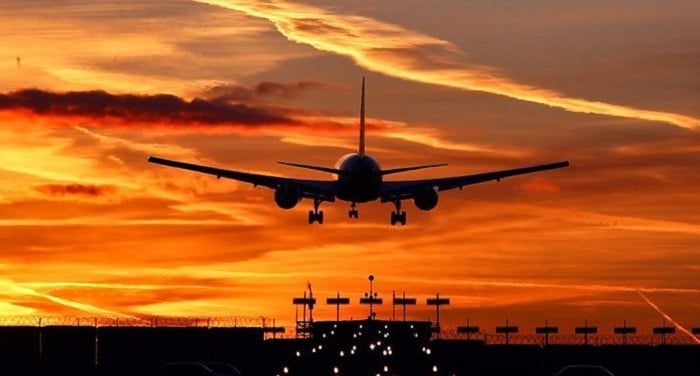Air travellers are presently groaning under the prohibitive fares foreign airlines operating in Nigeria have rolled out for flights between Nigeria and their home countries.
Many of the foreign carriers have even warned that the situation will worsen and make Nigerian travellers pay even more unless the Federal Government begins to settle the outstanding $450 million that has been trapped in the country.
Air travel experts said most of the foreign carriers have stopped selling the lower fares inventory in Nigeria, leaving travellers with the expensive fares option, described as the highest in the sub-region.
Foreign airlines that have stopped selling low-fare tickets include Virgin Atlantic, which now charges N2.353,200 for economy and N5,345,700 for business class on the Lagos-London route.
For Turkish Airlines, the economy class ticket for the Lagos-Istanbul route has risen to N874,661, while the business class ticket is now N1,980,876.
This is the same situation Nigerian travellers are experiencing with other foreign carriers like British Airways, Delta Air Lines, Lufthansa, KLM/Air France, Air Maroc and Ethiopian Airlines.
Before now, an economy class ticket on the Nigeria-UK route was between N400,000 and N650,000, depending on the booking period, while a business class ticket was between N800,000 and N1.2 million.
Some of the foreign airlines’ officials who spoke to Saturday Tribune on condition of anonymity, because their home countries did not authorise them to comment on the situation, said one of the factors responsible for the high airfare regime was the failure of the government to release the foreign airlines’ trapped funds for them to remit to their head offices.
A source at British Airways, who said many other factors were responsible for the fare hikes, cited the lack of forex, expensive aviation fuel, trapped funds and high demands for summer travels by Nigerians.
“Many factors are responsible for the fare hikes on the foreign routes ranging from high exchange rate to high demand for summer travellers and forex that has not improved but is getting worse. We are selling in naira and not remitting in dollars and our money is trapped in the CBN. We pay our crews in foreign currencies, we carry out our maintenance in foreign currencies and we still do not have access to the funds.
“Demands for foreign air travel have gone up for the first time since COVID as those who could not travel then now want to do so. But things are not getting better. In fact, they may soon get worse,” the source added.
The president of the National Association of Nigeria Travel Agencies (NANTA), Mrs Suzan Akporiaye, explained how the attitude of the Federal Government towards remitting the foreign carriers’ trapped funds and the unavailability of foreign exchange have pushed the travel agencies and travelling public into a tight situation.
Akporiaye said: “The major reason behind the hike in airfares is the inability of the airlines to get their funds and they have to resort to looking outside the official channel, the primary market to get their funds. The funds that are stuck are backlogs and not even current transactions of as far back as from the last quarter of last year to January this year.
“They are looking a bit better. They were able to send some of their funds home but it became worse. That is the reason, why the airlines had to go and source funds from the primary market. Again, the airlines are trying to reduce their exposure. There is not even an issue of paying them because it is actually their money, transactions that were done. And the bilateral agreement allows them to send their money back to their home countries, the airlines’ headquarters, and this has been breached, and most of the time the reason this thing happens is because there are financial challenges in the country and nobody would continue to do business as usual with any institution that is experiencing financial challenges. It is a risk no businessman is willing to take.”
While insisting that the hike in fares is a way for the international carriers to protect themselves so that they could manage their level of exposure, the NANTA president added: “That is why it is happening this way and it cuts across the airlines. It is a general concern and it is getting worse. I spoke to some airlines today just to find out if there had been any changes or hope, all their response is that the problem is actually getting worse and the airlines are getting more scared.
“I am really surprised that the government is not even saying anything. We at NANATA have been talking. The airlines have also been going to the CBN and nothing is coming from there. Even IATA has also been talking and, interestingly, our government is not saying anything. We really don’t know what is going on, whether it is a concern or not, we don’t know. Until they talk to us, we are all in the dark. Even the foreign airlines that are the ones that are directly affected by this issue are all in the dark.
“I don’t think it is fair to us as Nigerians and to the airlines that you have signed bilateral agreements for them to do business with you only to keep quiet in the face of this challenge that is going on. It is a genuine challenge, actually. We have a serious forex issue, no doubt. We know about that but then again, they have to find a way of balancing the few they have to go around. The airlines are not asking for all the backlogs to be paid at once. If arrangements can be made for 20, 30 per cent of the backlogs being paid to the airlines, I think they will be a bit comfortable and relax some of the restrictions they have placed on the Nigerian market.”
While confirming that the foreign airlines have since stopped selling tickets in lower inventories in the system, Akporiaye said: “They are only selling the higher ones and, interestingly, it is only in Nigeria. The lower inventories are available to travel agencies in other parts of the world. The particular airline that you mentioned, Virgin Atlantic, it’s lower inventories that are not available for us here but are available for them in the UK to sell. So, what does that tell you? For our clients in Nigeria, we have to be buying tickets for them from other countries.
“Even Ghana here, they are selling their lower inventory fares. Restrictions have not been placed there. So, we can’t see the lowest prices here in Nigeria but they are seeing them in Ghana. So, Nigerians are now travelling to go and fly from Ghana. The income that I would have made as a travel agency, I can’t make it. The income to Nigeria on that transaction, they can’t get it. Rather, it is Ghana that is getting it because there are lower inventory tickets there.
“So, there is a great loss for the Nigerian travel agencies. There is a loss for the government of Nigeria and a bigger loss for us, travel agents, and also for the travelling public. Remember, the travel agencies are just selling, Nigerians who have to travel for one thing or the other are the ones that are suffering the hike in airfares.”
Also reacting, one of the key players in the sector, the managing director of Centurion Aviation Security and a member of the Aviation Round Table (ART), Group Captain John Ojikutu (retd), said: “These people are paying for the services in Nigeria in dollars to FAAN, NAMA, fuel marketers, etc. For these airlines to come here and pay you in dollars, and they want to repatriate their Naira and cannot take it back, it is not good. If they cannot exchange their money, then they charge more Naira from passengers to go and change in the black market and take their money back.”
While cautioning the Federal Government to be careful with the way the foreign airlines are presently being treated over the trapped funds, Ojikutu said: “Nigerians will be the ones to suffer for the trapped funds because the airlines must repatriate their funds back. They are doing business and they must make money out of it. So, if the CBN cannot pay them, they must find another source to take their money home.”
The International Air Transport Association (IATA), the clearing house representing over 300 airlines across the globe, at the end of its recently concluded Annual General Meeting (AGM) in Doha, United Arab Emirates, regretted how the Nigerian government had failed to remit $450 million of airlines sales proceeds from Nigeria.
Speaking at the AGM, the IATA Director General, Willie Walsh, said over $1 billion blocked funds of foreign airlines were trapped in Africa, including Nigeria, even as he bemoaned how the trapped funds were deeply impacting the airlines and their recovery. He said this was responsible for the reason why the continent was not getting additional capacity from the foreign carriers.
“We are looking at ways to get these funds out. It is really having an impact on the airlines and the recovery of the market as well because airlines will be reluctant to bring capacity into markets where they can’t repatriate their money. It affects national growth and additional capacity. If you can’t get your money out, I am sorry, it is a simple business decision, you are not going to get additional capacity.
“Airlines are looking to recover their money and they are not going to put their funds into markets that they have no confidence. I think this is a significant factor against recovery in the continent. It is unfortunate because it would affect the consumers they are not going to get the choice, they are not going to get the competition and they would not be able to get the choice that they have been getting if the funds were not blocked. They are big issues, really big issues.”
When contacted to speak on the issue, the spokesperson for the Nigerian Civil Aviation Authority (NCAA), Mr Sam Adurogboye, said: “It is a tough time all over the world for all sectors. Jet A 1 is the major cost component for airline operations and the price is also going up.
“Exchange rate is also not helping matters. However, foreign airlines have filed their fares as required by law with the NCAA. Each airline filed different fares from low to high, and graduated in order of classes, consisting of low and high seasons. We are monitoring the situation and we will act appropriately once there is any violation.”










